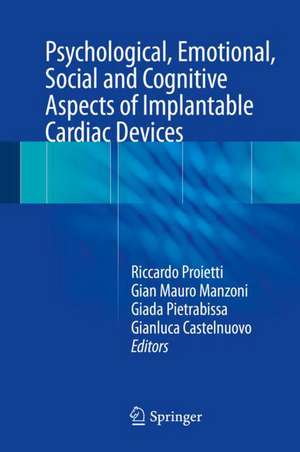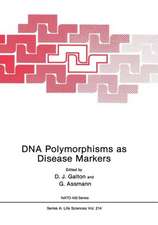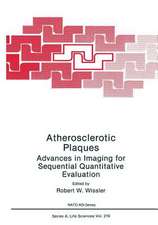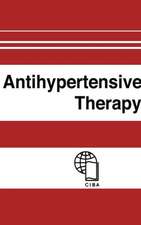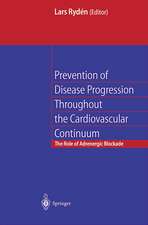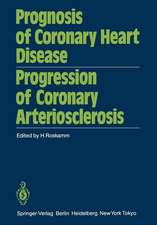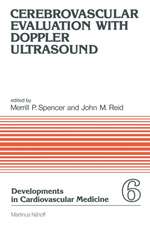Psychological, Emotional, Social and Cognitive Aspects of Implantable Cardiac Devices
Editat de Riccardo Proietti, Gian Mauro Manzoni, Giada Pietrabissa, Gianluca Castelnuovoen Limba Engleză Hardback – 4 aug 2017
| Toate formatele și edițiile | Preț | Express |
|---|---|---|
| Paperback (1) | 864.52 lei 38-45 zile | |
| Springer International Publishing – 3 aug 2018 | 864.52 lei 38-45 zile | |
| Hardback (1) | 666.67 lei 38-45 zile | |
| Springer International Publishing – 4 aug 2017 | 666.67 lei 38-45 zile |
Preț: 666.67 lei
Preț vechi: 701.76 lei
-5% Nou
Puncte Express: 1000
Preț estimativ în valută:
127.56€ • 133.19$ • 105.58£
127.56€ • 133.19$ • 105.58£
Carte tipărită la comandă
Livrare economică 31 martie-07 aprilie
Preluare comenzi: 021 569.72.76
Specificații
ISBN-13: 9783319557199
ISBN-10: 331955719X
Pagini: 290
Ilustrații: XI, 296 p. 11 illus., 5 illus. in color. With online files/update.
Dimensiuni: 155 x 235 mm
Greutate: 0.65 kg
Ediția:1st ed. 2017
Editura: Springer International Publishing
Colecția Springer
Locul publicării:Cham, Switzerland
ISBN-10: 331955719X
Pagini: 290
Ilustrații: XI, 296 p. 11 illus., 5 illus. in color. With online files/update.
Dimensiuni: 155 x 235 mm
Greutate: 0.65 kg
Ediția:1st ed. 2017
Editura: Springer International Publishing
Colecția Springer
Locul publicării:Cham, Switzerland
Cuprins
Cognitive function in patients with congestive heart failure.- Heart brain connection in patients with ischemic heart disease.- Neurovegetative system and congestive heart failure.- Cognitive performance in the elderly.- Evolution and principle of pacing devices.- Hemodynamic performance of cardiac devices.- Impact of cardiac devices on QoL.- Pacemakers and cognitive performance.- Anxiety, depression and QoL in patients with ICD.- Emotional impact of device recall.- Cognitive impact of CRT.
Recenzii
“This book is a useful reference on the pathophysiology, screening, and treatment of problems associated with implantable cardiac devices. … very valuable for cardiology trainees and educators who train medical students/residents, in addition to practicing cardiologists. … a guide to problems associated with implantable cardiac devices that provides a detailed description of psychological side effects and the best way to approach them. It also provides insights about ICDs in children and youth and the best ways to approach their families.” (Mohanad Hasan, Doody's Book Reviews, October, 2017)
Notă biografică
Since 2010 Dr. Riccardo Proietti MD has operated as Consultant Cardiologist at Luigi Sacco Hospital of Milan, specialising in cardiac pacing and electrophysiology. He has been certified in transthoracic echocardiography by the Società Italiana di Ecografia Cardiovascolare (SIEC). He is a member of the European Heart Rhythm Association (EHRA), the National Cardiology Association (ANMCO) and the Italian Society of Echocardiography (SIEC).
Between 2005 and 2012 Dr. Gian Mauro Manzoni was a clinical psychologist and researcher at the Ospedale San Giuseppe, Istituto Auxologico Italiano, specialising in cardiac rehabilitation. From January 2013 to March 2014 he held a position as a post-doc researcher at the Catholic University of Milan, Department of Psychology. Since May 2014 he has been the author of several articles in national and international peer-reviewed journals, as well as acting as the associate editor of the peer-review journal Frontiers in Psychology for Clinical Settings.
Prof. Gianluca Castelnuovo has served as the Assistant Professor of Clinical Psychology and Rehabilitation Psychology at the Catholic University of Milan since 2008. He is the author of several articles in national and international peer-reviewed journals, as well as acting as the specialty Chief Editor of Frontiers in Psychology for Clinical Settings and the Associate Editor in clinical and health psychology journals (BMC Obesity, Eating and Weight Disorders, Health Psychology and Behavioural Medicine).
Prof. Giada Pietrabissa trained at the Catholic University of Milan, Italy. She has written a number of articles in national and international peer-reviewed journals, and is a member of Order of Psychologists of Lombardy. She also operates as a psychological support consultant.
Between 2005 and 2012 Dr. Gian Mauro Manzoni was a clinical psychologist and researcher at the Ospedale San Giuseppe, Istituto Auxologico Italiano, specialising in cardiac rehabilitation. From January 2013 to March 2014 he held a position as a post-doc researcher at the Catholic University of Milan, Department of Psychology. Since May 2014 he has been the author of several articles in national and international peer-reviewed journals, as well as acting as the associate editor of the peer-review journal Frontiers in Psychology for Clinical Settings.
Prof. Gianluca Castelnuovo has served as the Assistant Professor of Clinical Psychology and Rehabilitation Psychology at the Catholic University of Milan since 2008. He is the author of several articles in national and international peer-reviewed journals, as well as acting as the specialty Chief Editor of Frontiers in Psychology for Clinical Settings and the Associate Editor in clinical and health psychology journals (BMC Obesity, Eating and Weight Disorders, Health Psychology and Behavioural Medicine).
Prof. Giada Pietrabissa trained at the Catholic University of Milan, Italy. She has written a number of articles in national and international peer-reviewed journals, and is a member of Order of Psychologists of Lombardy. She also operates as a psychological support consultant.
Textul de pe ultima copertă
This book reveals aspects of the management of patients with implantable cardiac devices beyond the direct cardiovascular benefits. With approximately 600,000 new pacemakers implanted each year, electrical therapy of the heart has rapidly evolved over recent years. New technology is continuously introduced into the market for the treatment of electrical heart disease with optimized performance and implemented design. While much attention has mainly focused on the biomedical aspects of electrical therapy, the psychological, emotional, social and cognitive aspects of the implantable devices have been largely overlooked.Psychological, Emotional, Social and Cognitive Aspects of Implantable Cardiac Devices considers the impact that these devices have on quality of life (QoL) and psychological disorders, including anxiety and depression. It has collected, appraised and condensed the results of all empirical studies that have investigated, even marginally, the relationships between the implantable devices and any psychological, emotional, social and cognitive dimension and is thus a cornerstone for all involved in device utilization (physicians, nurses, technicians, industry representatives) that need to understand this topic.
Caracteristici
Explores the cognitive and emotional impact of implantable cardiac devices Reviews and analyses the knowledge regarding the association between cardiac devices and cognitive changes Summarizes current evidence of this association
